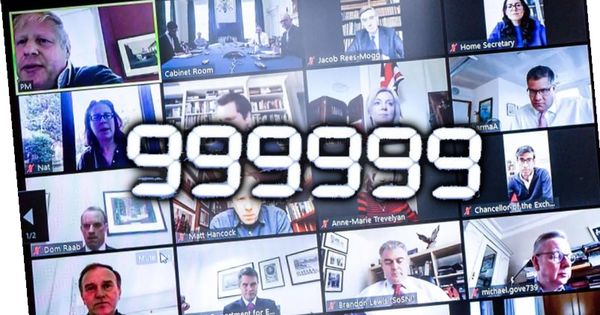Zoom bug meant attackers could brute force their way into password-protected meetings

Zoom has patched a security hole that could have allowed attackers to break their way into password-protected private calls.
The flaw, discovered by SearchPilot’s Tom Anthony, meant that hackers and spies could have broken into private password-protected Zoom video calls “within a matter of minutes.”
The problem revolved around the six-digit numeric passcode, used by default to secure Zoom chats. Six digits mean that the passcode for a specific chat had to be a number between “000000” and “999999”.
One million possible combinations may sound like an awful lot for a hacker to manually try, but it’s little effort for a computer to brute force their way through until they find the one that unlocks the private Zoom conversation.
Anthony had discovered the security concern after UK Prime Minister Boris Johnson made headlines after tweeting a screenshot of a sensitive Cabinet meeting held on Zoom, revealing its meeting ID.

At the time, the UK government debunked the threat posed by the tweet as entry to the Zoom meeting had been protected by a password.
However, Anthony discovered that his attempts to brute force his way into password-protected Zoom meetings did not trigger any warnings or slowdown.
With some what he described as “fairly clunky” Python code, Anthony was able to confirm that it was possible to crack his way into Zoom meetings without too much difficulty from a home PC.

According to the researcher, using 4-5 cloud servers it would be possible to check all the possible six digit numeric passwords in just “a few minutes.”
Contacting Zoom about the issue, Anthony made a number of suggestions, including:
- Rate-limiting the number of attempts that can be made to enter a password to a Zoom meeting (for instance, to 10 different attempts per hour)
- Rate-limit IP addresses if they make too many attempts to guess a password (regardless of which meeting ID may be targeted)
- Trigger a warning should a given meeting pass a set number of failed password attempts.
- Increase the length of the default password.
A spokesperson for Zoom confirmed that the video chat service has since improved its security:
“Upon learning of this issue we immediately took down the Zoom web client to ensure our users” security while we implemented mitigations. We have since improved rate limiting… and relaunched the web client on 9 April. With these fixes, the issue was fully resolved, and no user action was required. We are not aware of any instances of this exploit being used in the wild.”
Online services that are protected by something as simple as a six digit numeric passcode cannot afford to ignore the very real risk that attackers might attempt to brute-force their way through.
Making passwords longer and more complex than six numeric digits is one way to make life harder for hackers, but the most useful defence is undoubtedly to spot excessive failed attempts to break in and shut or slow them down so they no longer become practical.
tags
Author
Graham Cluley is an award-winning security blogger, researcher and public speaker. He has been working in the computer security industry since the early 1990s.
View all postsRight now Top posts
How to Protect Your WhatsApp from Hackers and Scammers – 8 Key Settings and Best Practices
April 03, 2025
Outpacing Cyberthreats: Bitdefender Together with Scuderia Ferrari HP in 2025
March 12, 2025
Streamjacking Scams On YouTube Leverage CS2 Pro Player Championships to Defraud Gamers
February 20, 2025
How to Identify and Protect Yourself from Gaming Laptop Scams
February 11, 2025
FOLLOW US ON SOCIAL MEDIA
You might also like
Bookmarks








